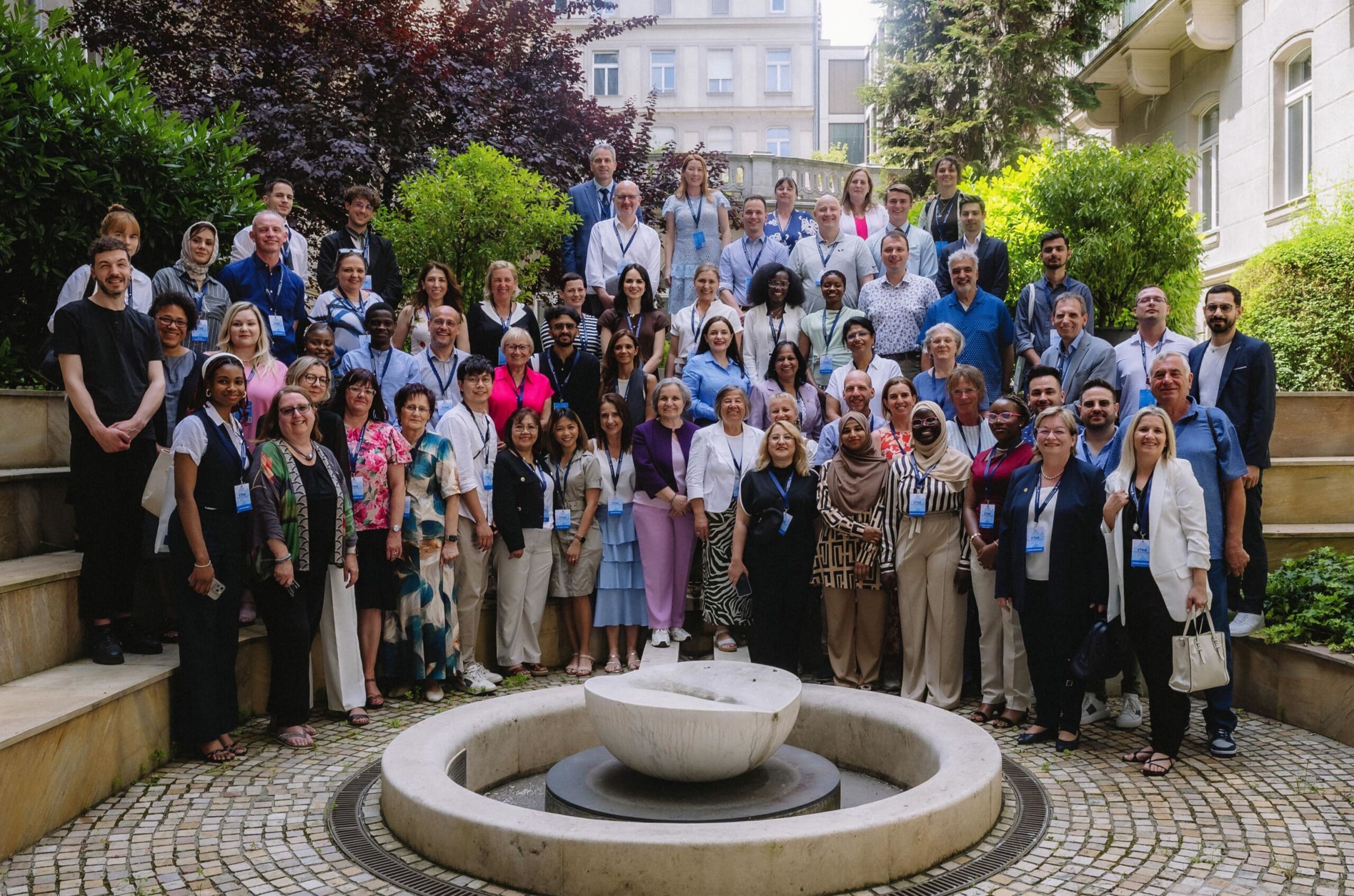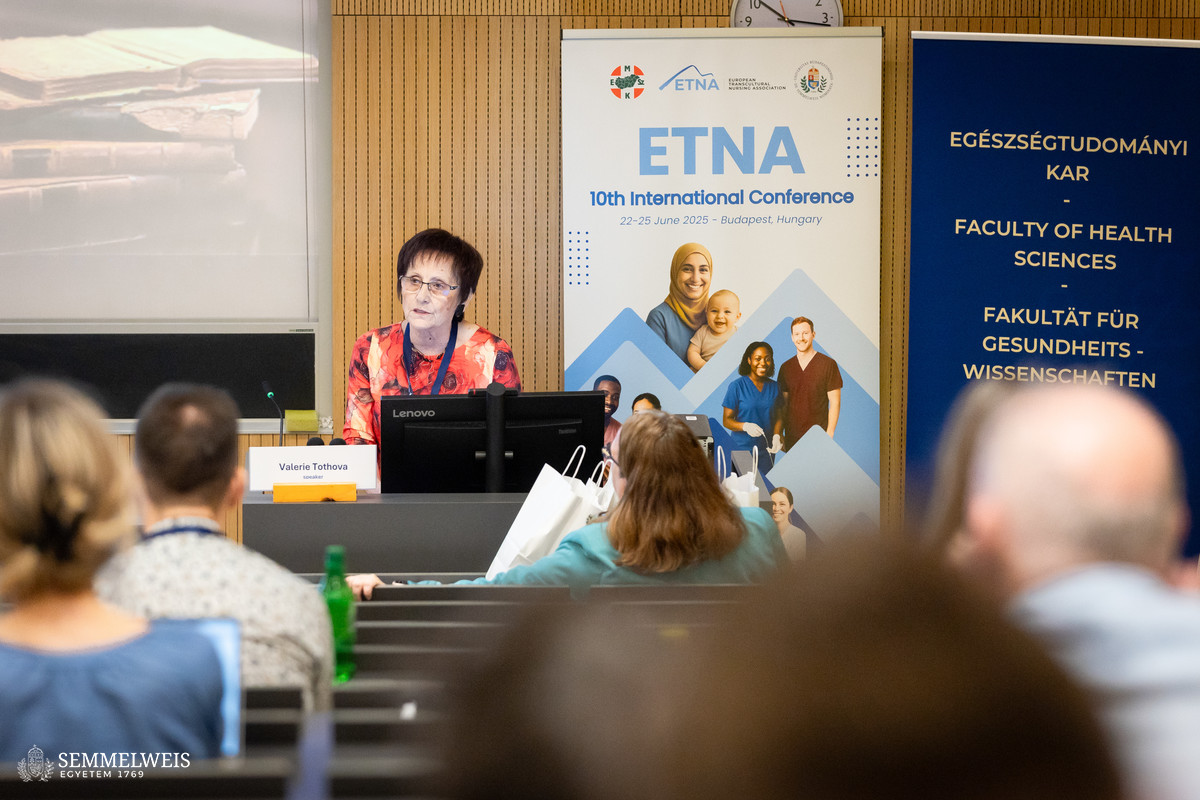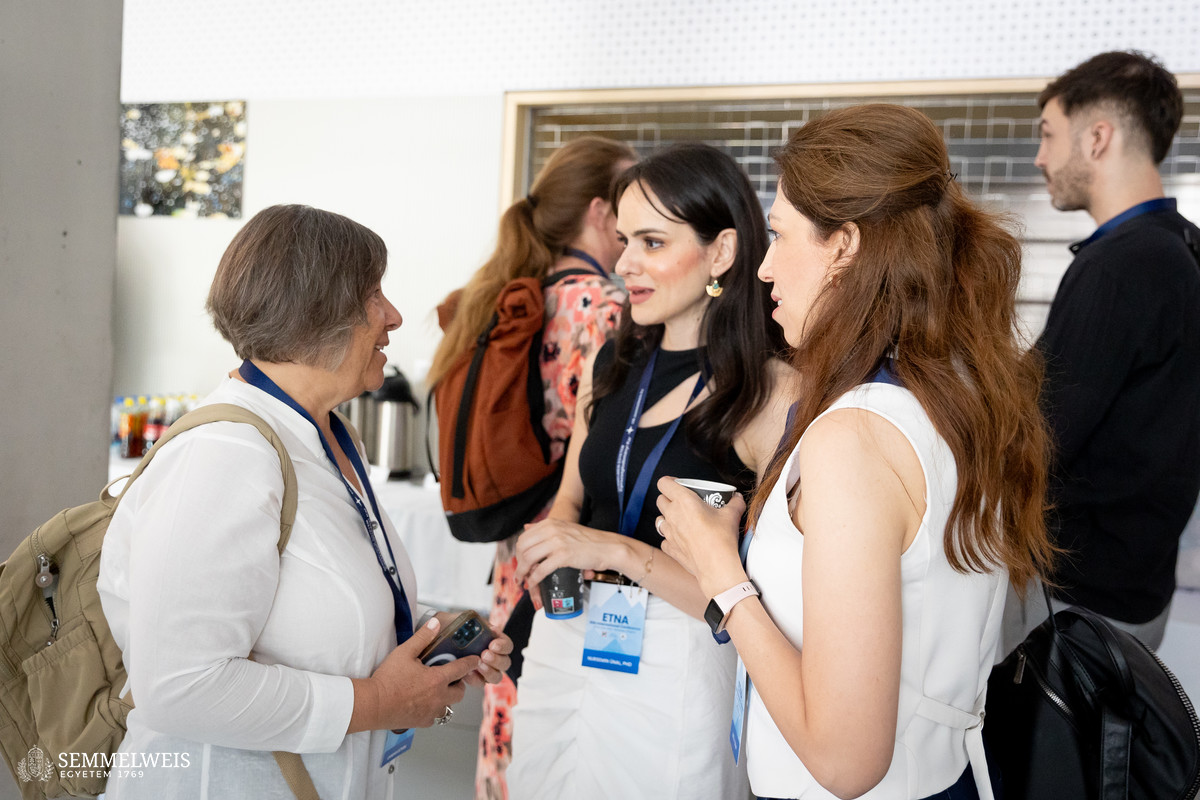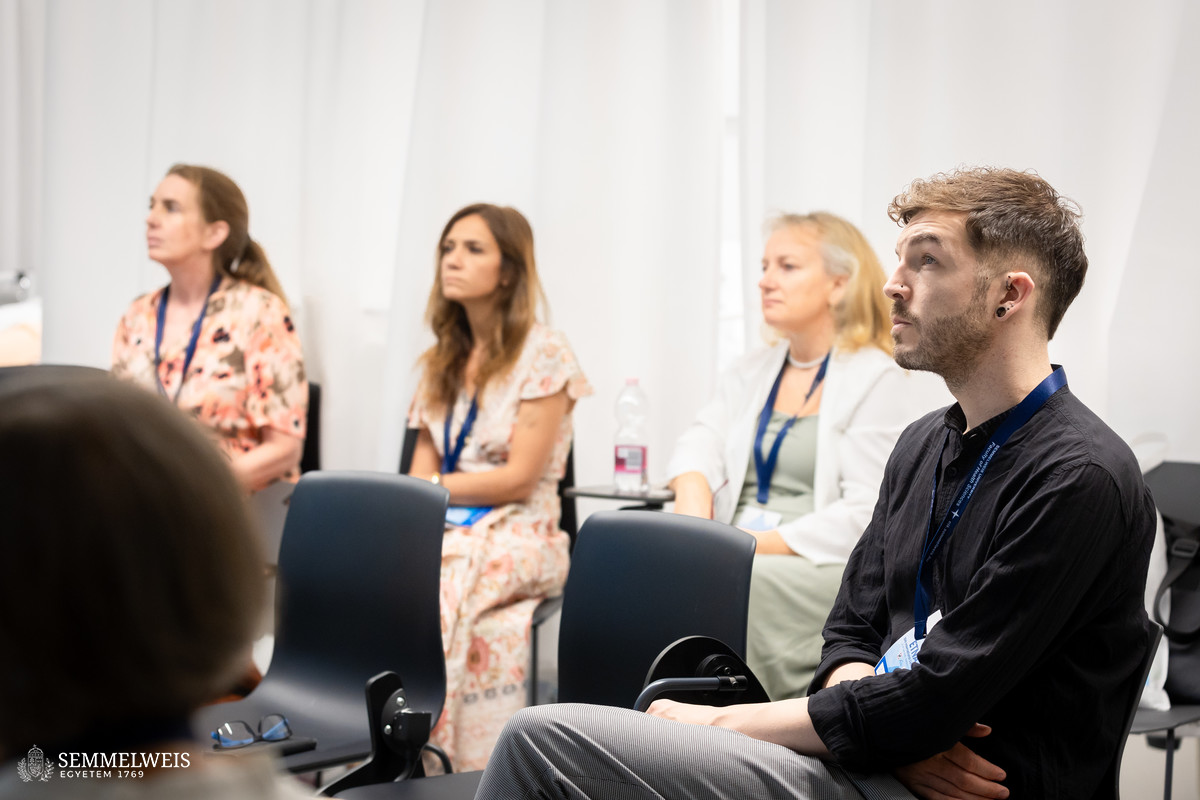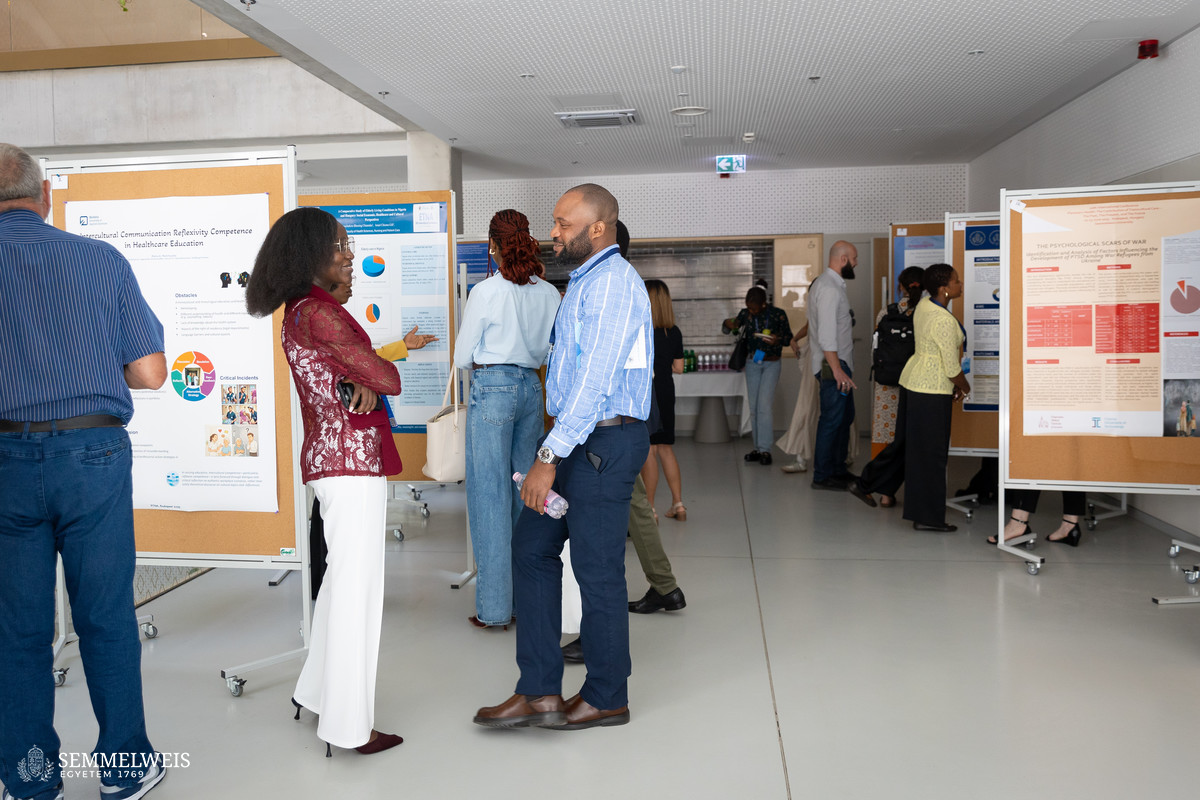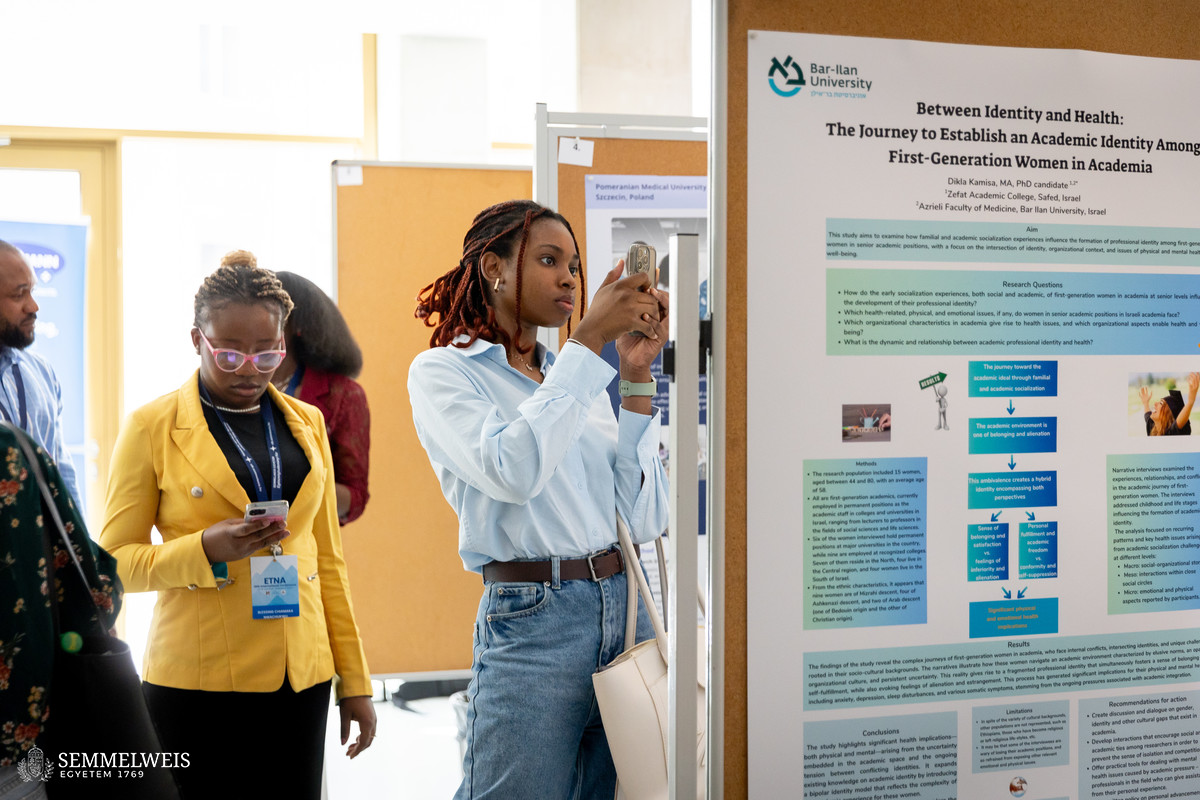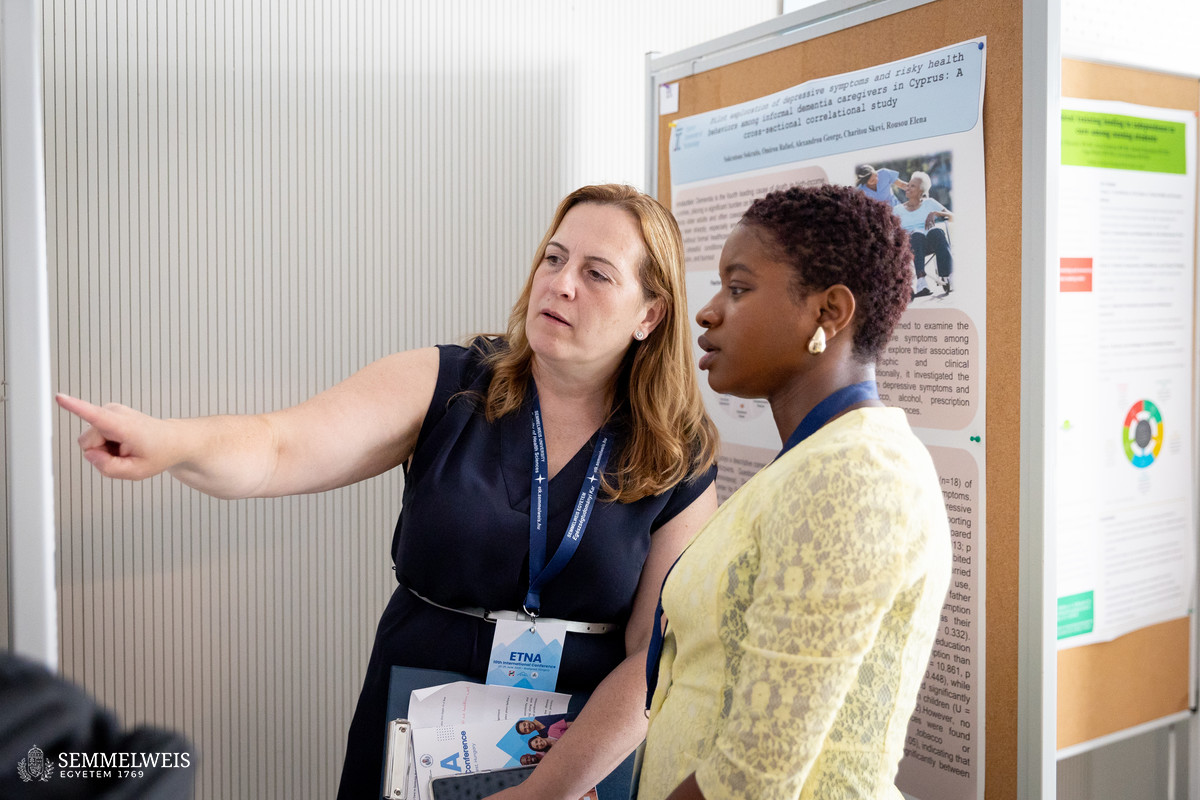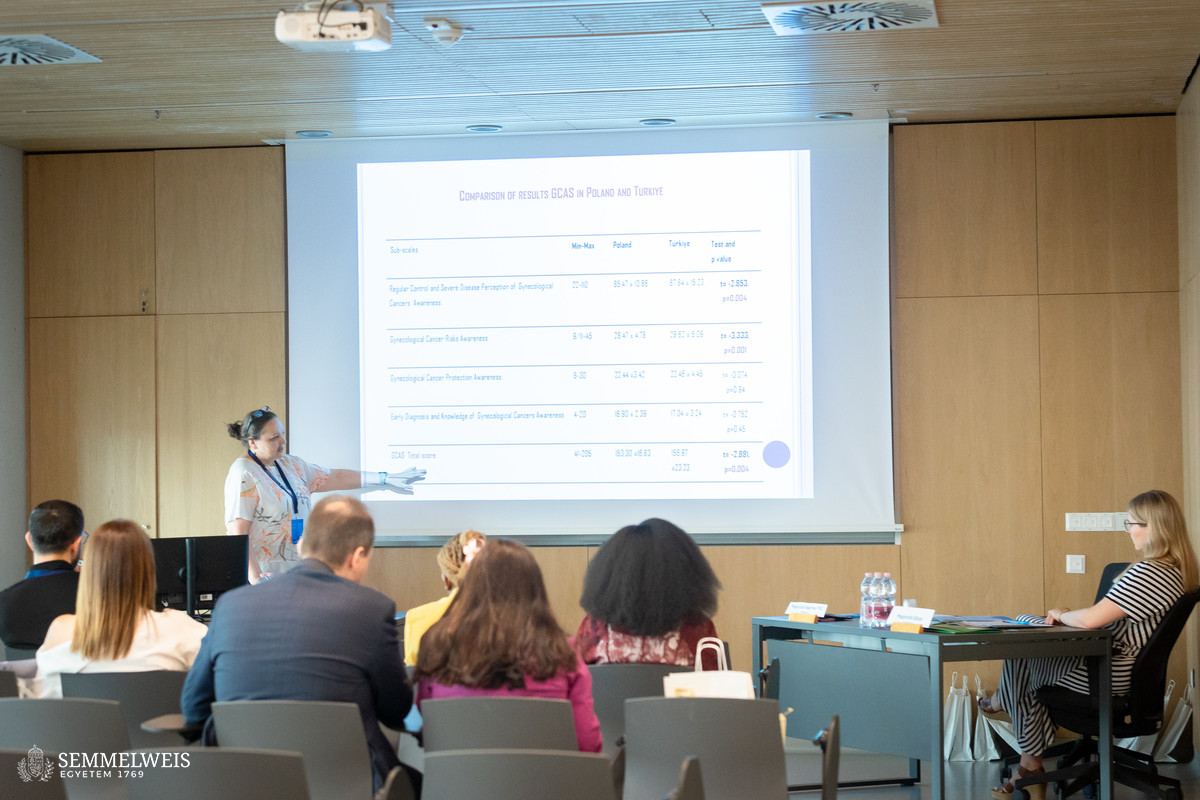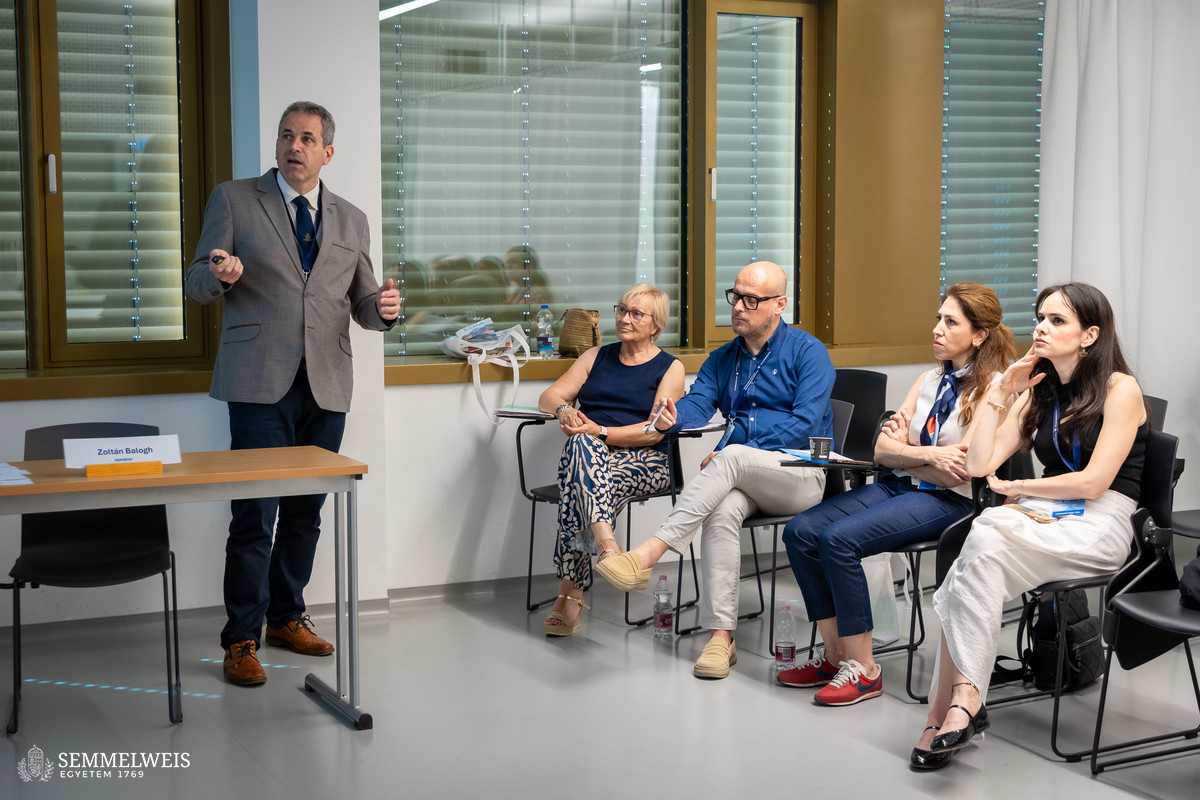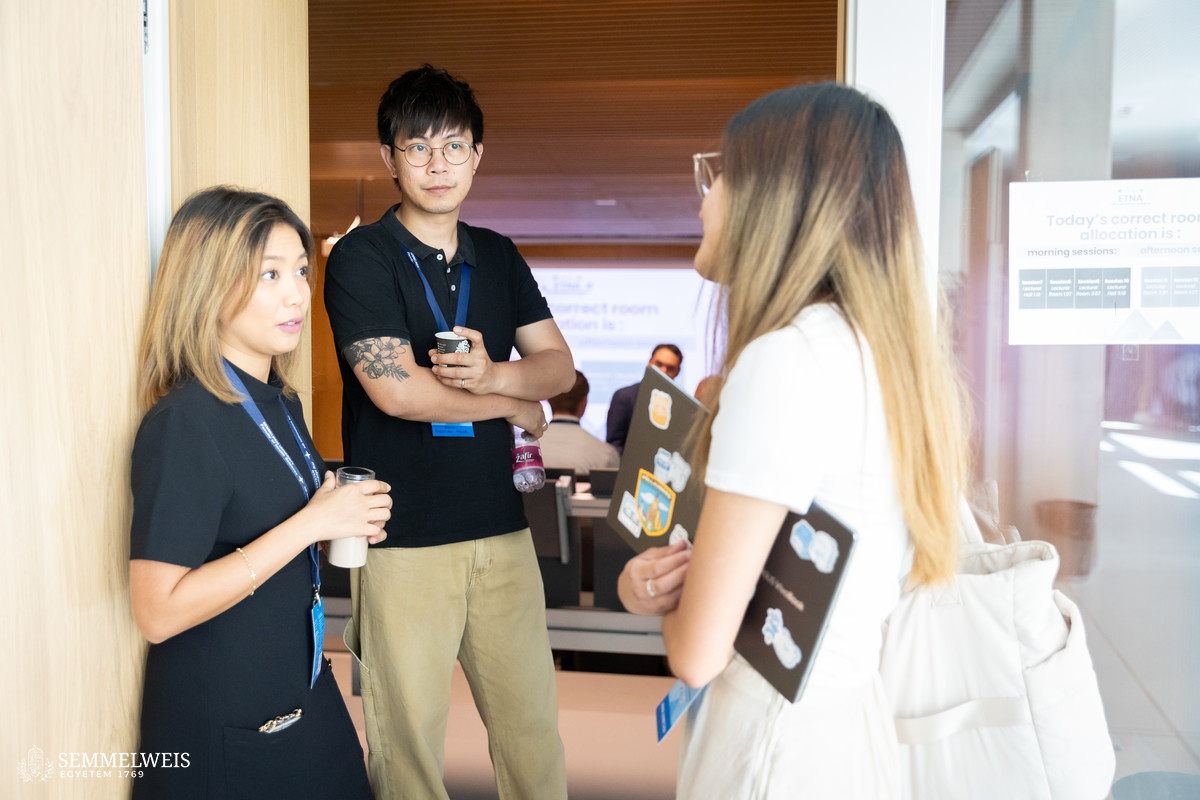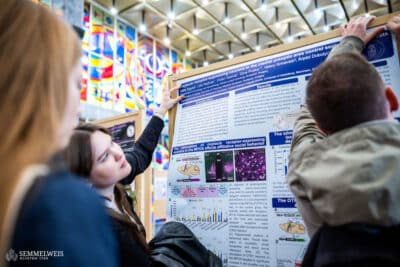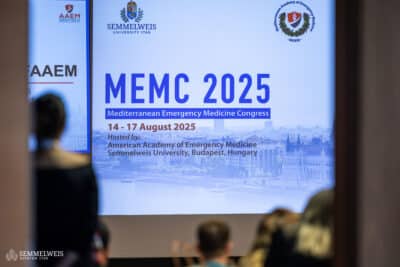Founded in 2005, the European Association for Transcultural Nursing is a professional organization with 770 members. It aims to disseminate knowledge on sociocultural diversity in nursing education and practice and to facilitate the exchange of best practices between professional organizations and higher education institutions.
For the second time since 2015, the Faculty of Health Sciences hosted the biennial international ETNA conference at the end of June, with around 90 participants. The two-day program consisted of three plenary sessions and 13 sessions with nursing experts from 24 countries in North America, Africa, Asia, and Europe, as well as about 20 poster presentations.
In his keynote speech, Dr. Tamás Palicz, Deputy Director of the Health Services Management Training Center at Semmelweis University, explained how digitalization and artificial intelligence will shape the future of healthcare and nursing. Further sessions focused on healthcare, social care, policy, global health challenges, caring and refugees, gender, sexuality, age-specific aspects, and inclusive care. Dr. Zoltán Balogh, Deputy Dean and Head of the Department of Nursing; Dr. Klára Gadó, Deputy Dean and Director of the Department of Geriatrics and Center for Nursing Science; Erzsébet Horváthné Kónya, Master Teacher; Andrea Virág, Head Nurse of the Department of Geriatrics; and Ádám Attila Szücs, speech therapist, presented how artificial intelligence can be applied in the professional practice of international nursing students. Honorary Associate Professor Dr. Henriett Hirdi, Vice-President of the Hungarian Chamber of Health Care Professionals (MESZK) and President of the Federation of Occupational Health Nurses within the European Union (FOHNEU), and Regina Molnár, Nursing BSc, gave a presentation on culturally competent care and the occupational health challenges faced by migrant workers. Attila Lőrincz, Master Teacher at the Department of Nursing, illustrated how artificial intelligence can be applied in the teaching of clinical simulation to international nursing students. Dr. Zoltán Balogh and Dr. Henrietta Galvács, Assistant Professor at the Department of Nursing, spoke about the care of patients from different cultures in care provided by general practitioners.
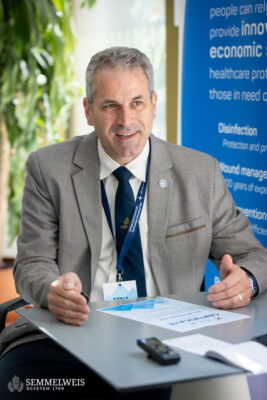 Dr. Zoltán Balogh, Chair of the Conference Organizing Committee, Vice-Dean of the Faculty of Health Sciences, Head of the Department of Nursing, and President of the Hungarian Chamber of Health Care Professionals, told our website that transcultural nursing had been part of the nursing curriculum at Semmelweis University for 22 years. Between 2003 and 2006, Erzsébet Rozsos, Assistant Professor Emerita at Semmelweis University’s then College of Health Care, made an invaluable contribution to the introduction of this subject in Hungary and its professional foundation as an elective course in the MSc Nursing program. The subject was first introduced as an elective course in this program; then, it became a compulsory course. Since 2006, it has also been incorporated into the BSc Nursing program. The department head also teaches care provided for diverse residential communities as part of the Community Nursing course for health visitor students.
Dr. Zoltán Balogh, Chair of the Conference Organizing Committee, Vice-Dean of the Faculty of Health Sciences, Head of the Department of Nursing, and President of the Hungarian Chamber of Health Care Professionals, told our website that transcultural nursing had been part of the nursing curriculum at Semmelweis University for 22 years. Between 2003 and 2006, Erzsébet Rozsos, Assistant Professor Emerita at Semmelweis University’s then College of Health Care, made an invaluable contribution to the introduction of this subject in Hungary and its professional foundation as an elective course in the MSc Nursing program. The subject was first introduced as an elective course in this program; then, it became a compulsory course. Since 2006, it has also been incorporated into the BSc Nursing program. The department head also teaches care provided for diverse residential communities as part of the Community Nursing course for health visitor students.
The vice-dean recalled that Semmelweis University first offered English-language nursing education in 2011 with only a few participants. Now, classes have 30 to 40 students. They currently have 120 international students from North and South America, Asia, and Africa. These students are from countries ranging from the United States to Indonesia and from Norway to Chile. The diversity of course participants inspires the teachers to explore the characteristics of their communities in depth. During the orientation course, students present their culture as an authentic voice in key areas such as eating habits, clothing, religion, and attitudes toward health, illness, birth, and death. Whether the disease is considered a taboo subject, whether it is customary to go for screening tests, and what gender differences exist in patient care may vary from culture to culture, said Dr. Zoltán Balogh, listing some examples. “It’s remarkable to see Catholic, Christian, Jewish, Muslim, Hindu, and other cultural and religious communities learning peacefully side by side in the same classroom,” he added. “I tell my Hungarian students all the time that we must first understand our own culture and customs, as well as our religious, ethical, and moral teachings, to become open-minded.” As he explained, the theoretical foundation of transcultural nursing goes back to American nursing theorist Madeleine Leininger. To this day, many best practices used have originated in the United States, which is known for its multicultural environment. Accordingly, the Faculty of Health Sciences has welcomed Fulbright professors in recent years, who have contributed to advancing national educational practices. He highlighted the work of Professor Roberta Hunt, whose textbook, Introduction to Community-Based Nursing, is also available in Hungarian.
Summarizing the past two decades of experience, Dr. Zoltán Balogh emphasized that they aimed to reflect students’ needs when organizing education. For example, they have adjusted the choice of teacher or the time of consultations and exams to the cultural needs of the given student group.
The faculty considers it a priority to familiarize international students with not only Hungarian culture and the language but also local customs. These customs can manifest in everyday situations, such as using the International System of Units (SI) to measure medicine. For the same reason, students on overseas placements were also offered a catch-up course on imperial and U.S. customary measurement systems. In overcoming the initial language barriers and drilling some of the pathologies, they can make use of artificial intelligence, which may be applied in undergraduate training and in teaching students from abroad who participate in summer university courses. Dr. Zoltán Balogh said that the assistance of doctors and nurses was increasingly needed during international students’ internships, so they were currently performing their duties at maximum capacity.
The advantage of our university is that, within the high patient volume, we treat many non-national patients, so it is a requirement that nursing staff are culturally sensitive and speak foreign languages.
– Dr. Zoltán Balogh
The vice-dean added that several of their former students currently work in university patient care. He announced that, starting this summer, the Faculty of Health Sciences would join the university’s clinical work program, in which international students are expected to participate actively.
Judit Szabados-Dőtsch
Photos by Boglárka Zellei – Semmelweis University; Viktória Ribárszki – MESZK
